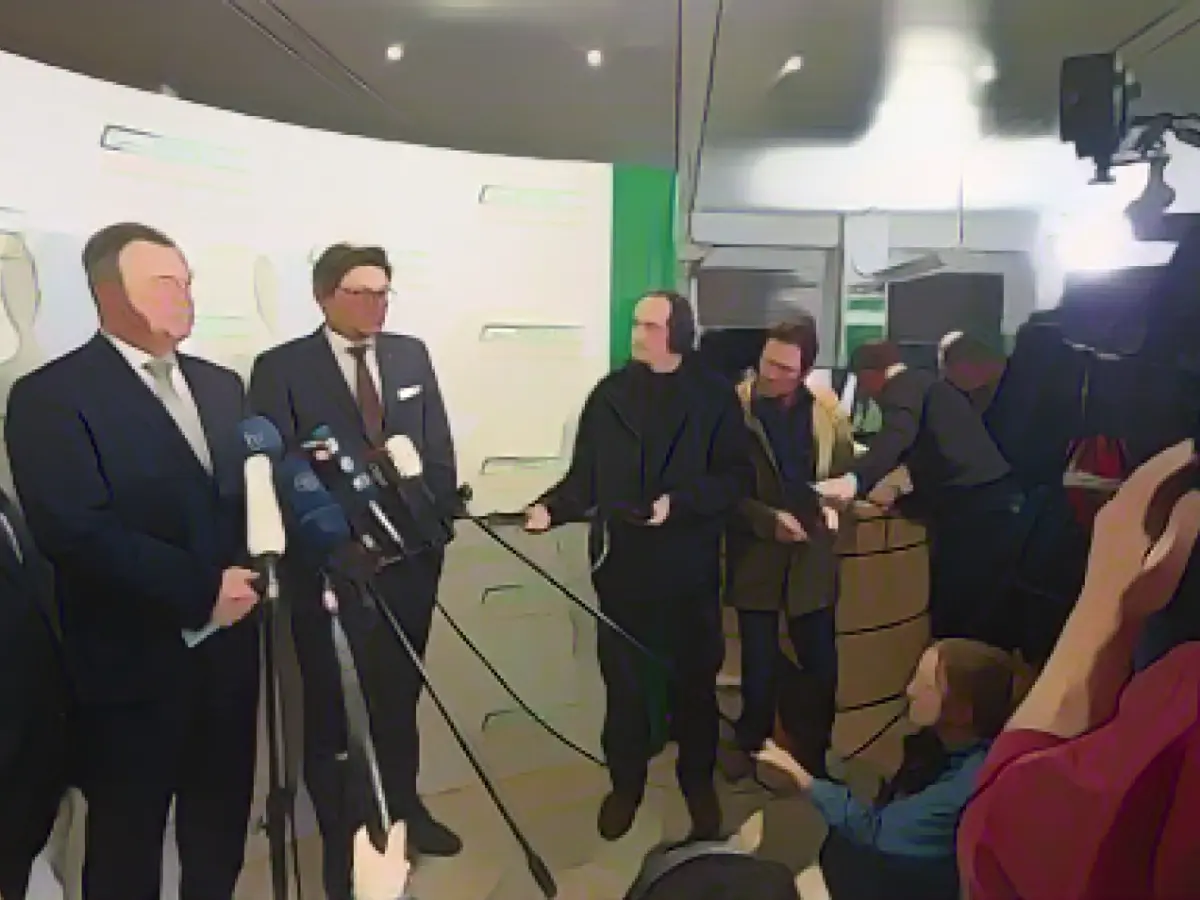Train Drivers' Union Stirring up Trouble in January's Rail Disputes
German rail employees, specifically from the Train Drivers' Union (GDL), aren't holding back their discontent. Essentially, they're hinting at a series of longer and more intense strikes to shake things up in the ongoing wage dispute with Deutsche Bahn and other rail companies. A whopping 97% of those who cast votes during a union ballot voted in favor of indefinite strikes, according to GDL boss Claus Weselsky.
So, what does this mean for travelers?
Will strikes be imminent?
Not just yet. Weselsky confirmed that a "Christmas and New Year’s peace" would stay intact. No industrial action is expected before January 8, ensuring hassle-free holiday travel. However, we can't rule out potential upheaval in the new year. Weselsky warned that coming strikes would be more forceful, lengthier, and more taxing for the passengers compared to the previous warning strikes.
How long can GDL strikes last?
There's no specific time limit for strikes following a ballot. In theory, they can continue indefinitely. But the GDL isn't aiming for endless strikes, clarified Weselsky. Week-long strikes were quite common in past collective bargaining rounds. In 2015, the longest strike was a 5-day affair, comprising 127 hours in passenger transport and 138 strike hours in freight transport at Deutsche Bahn. Things have been a bit calmer since then, with strikes lasting around 5 days in 2021.
Why require a ballot for longer strikes?
Essentially, it's members signaling their willingness to make financial sacrifices. Though unions cover wage and salary losses from the strike fund, the reimbursement isn't usually full. A participating employee ballot ensures a 75% quorum of employees vote in favor of indefinite strike action for such financial sacrifices.
Throughout the year, transit chaos has already reared its head
Passengers have had a bumpy ride due to worries of strikes that occurred during the collective bargaining round with the EVG in spring and summer. EVG called for warning strikes three times, with two taking place. This year, Deutsche Bahn dealt with four warning strikes — each contributing to higher costs and customer frustration due to low punctuality rates.
Negotiations: When will we see a comeback?
Both parties haven't revealed when they'll return to the bargaining table. In late November, GDL called off wage talks with Deutsche Bahn, later also quitting the negotiations with Transdev. GDL's leader, Claus Weselsky, has no interest in seeking help from an external mediator. With no clear resolution in sight, it looks like tensions will persist.
What's at the heart of the wage dispute?
The union is pursuing various demands including a €555 monthly increase and tax- and duty-free inflation compensation bonus for one year. Deutsche Bahn has provided an 11% raise offer for a 32-month term, but the actual currency isn't the primary concern, as per public statements. Instead, the GDL's primary demand is reducing weekly working hours for shift workers from 38 to 35 hours with complete payment. Deutsche Bahn opposes this, citing the need for increased staff as a main constraint.
Notably, GDL helped forge an agreement for a 35-hour week for shift workers with another rail company, the Italian state rail subsidiary Netinera. This change will be phased in starting January 1, 2025. However, Netinera is significantly smaller than Deutsche Bahn and employs far fewer people in Germany.
As trained railway employees, GDL members have been well-remunerated so far
According to the group, train drivers at Deutsche Bahn earn annual salaries ranging between €45,000 - €56,000, including bonuses. Based on professional experience and roles like assignments in international traffic or as an instructor, wages can vary.
Reference(s): [1] www.stern.de
Enrichment Data: The potential strikes by the German Railway and Transport Union (EVG) in the ongoing wage dispute with Deutsche Bahn could last indefinitely if no agreement is reached. The EVG has threatened unlimited strike action unless an agreement is reached by March 21, 2025, according to the latest negotiations and union demands [2][4]. However, the specific duration of the strikes would depend on the outcome of the negotiations and the union's strategy.
In the context of the BVG dispute, the Verdi union has also threatened indefinite strikes if no agreement is reached by March 21, 2025. This indicates a pattern of escalating industrial action in response to unresolved wage disputes [3][5].
In summary, while there is no specific duration mentioned for potential strikes by the EVG, the threat of indefinite strikes suggests that the duration could extend beyond the initial warning periods if negotiations fail to yield a satisfactory outcome.








